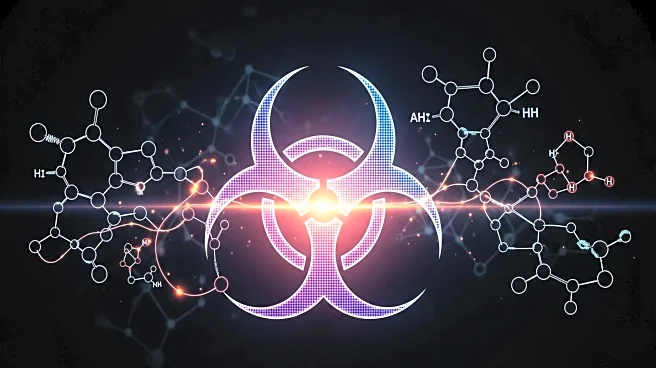What's Happening?
A recent study by Edwards, Hoogenboom, and colleagues has uncovered new insights into the mechanisms of polymyxin antibiotics, which target lipopolysaccharides (LPSs) in Gram-negative bacteria. The research indicates that metabolic inactivity in bacterial cells confers tolerance against polymyxin antibiotics. The study found that polymyxin B triggers LPS release through an ATP-dependent process, allowing the antibiotic to penetrate the inner membrane and cause cell death. This discovery highlights the importance of metabolic activity in the efficacy of polymyxin antibiotics.
Why It's Important?
Understanding the role of metabolic activity in antibiotic efficacy is crucial for developing more effective treatments against bacterial infections. This study provides valuable insights into how polymyxin antibiotics function, potentially leading to improved strategies for combating antibiotic-resistant bacteria. The findings could influence the development of new antibiotics or the optimization of existing ones, enhancing their effectiveness in clinical settings.
What's Next?
Further research is needed to explore the implications of these findings and to develop strategies that can overcome bacterial tolerance to polymyxin antibiotics. Scientists may investigate ways to enhance metabolic activity in bacterial cells to increase the efficacy of antibiotics. Additionally, the study could prompt a reevaluation of current antibiotic treatment protocols, potentially leading to more targeted and effective therapies.
Beyond the Headlines
The study raises ethical considerations regarding antibiotic use and the need for responsible prescribing practices to prevent the development of resistance. It also highlights the importance of continued research and innovation in the field of microbiology to address the growing challenge of antibiotic resistance.











